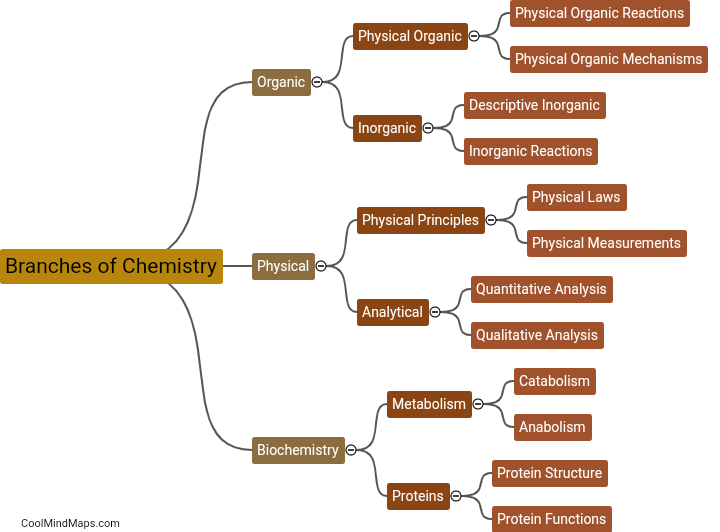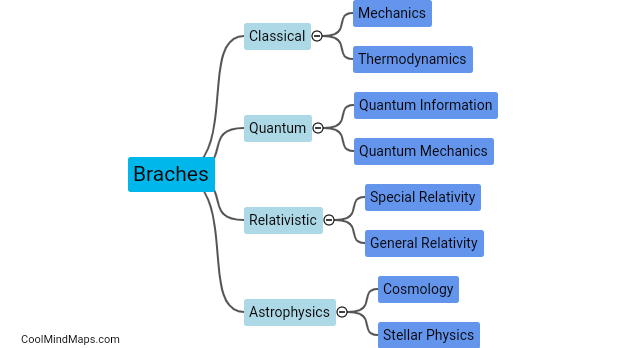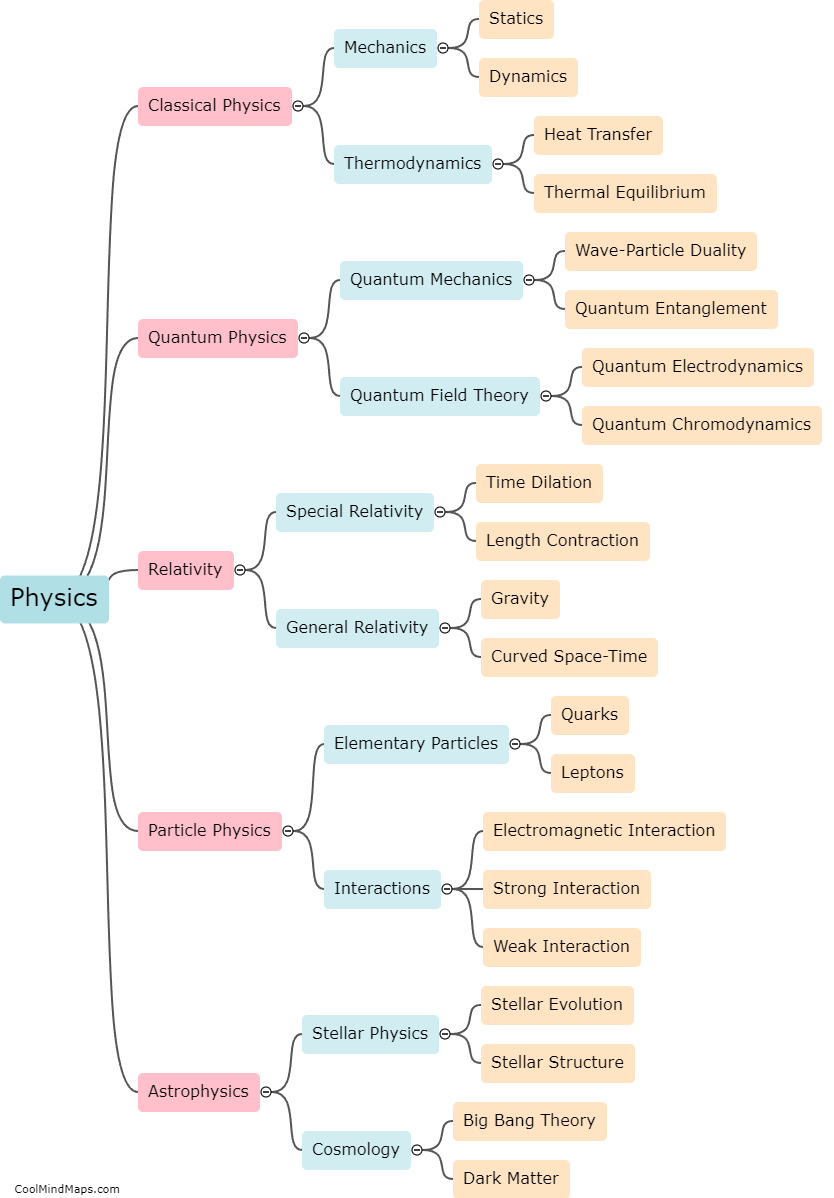What are the major areas of study in each branch of physics?
Physics can be broadly divided into several branches, each with its own major areas of study. In classical physics, the branch of mechanics focuses on the motion of objects and the forces that affect them. Thermodynamics and statistical mechanics explore the behavior of macroscopic systems and the conversion of heat into other forms of energy. Electromagnetism investigates the relationship between electric and magnetic fields, while optics examines the behavior and properties of light. Quantum mechanics, a branch of modern physics, studies the behavior of particles on a very small scale, including subatomic and atomic systems. Particle physics and nuclear physics explore the composition and interactions of fundamental particles and the atomic nucleus. Finally, cosmology deals with the origin, structure, and evolution of the universe as a whole, using principles from both classical and quantum physics.

This mind map was published on 21 July 2023 and has been viewed 131 times.











